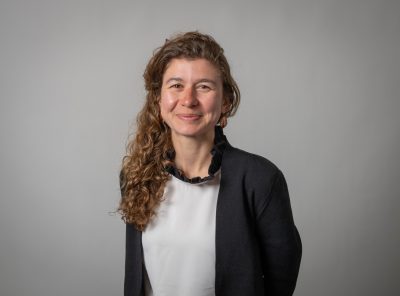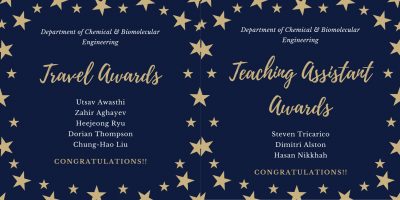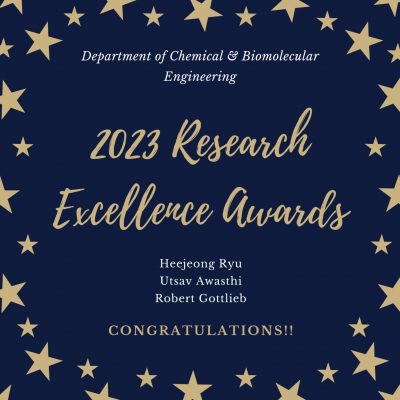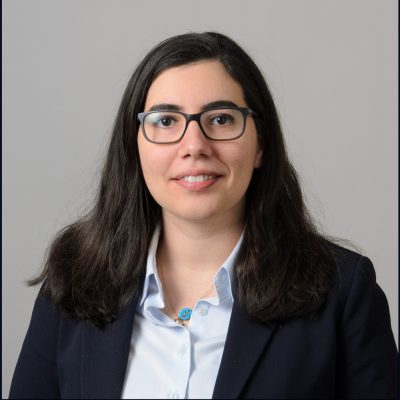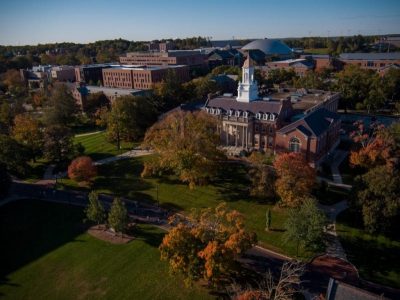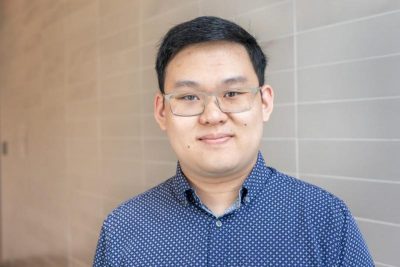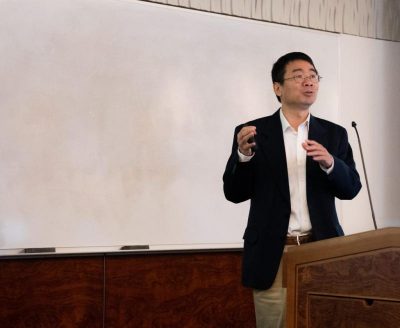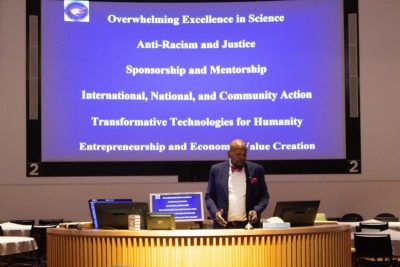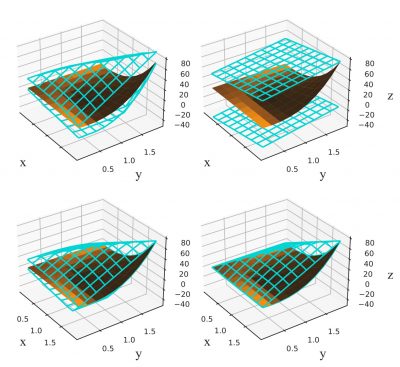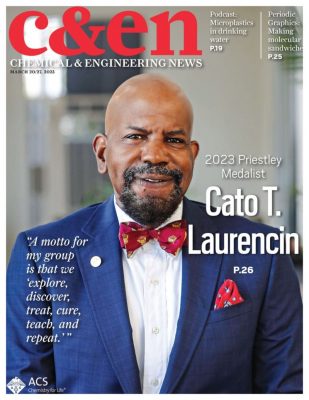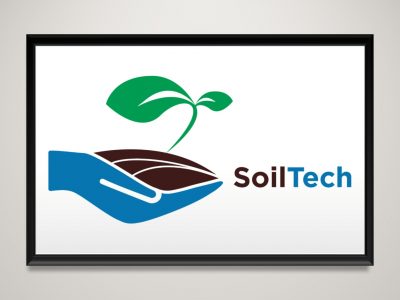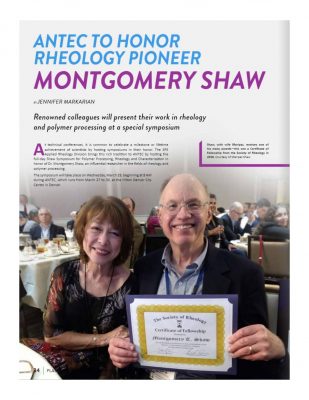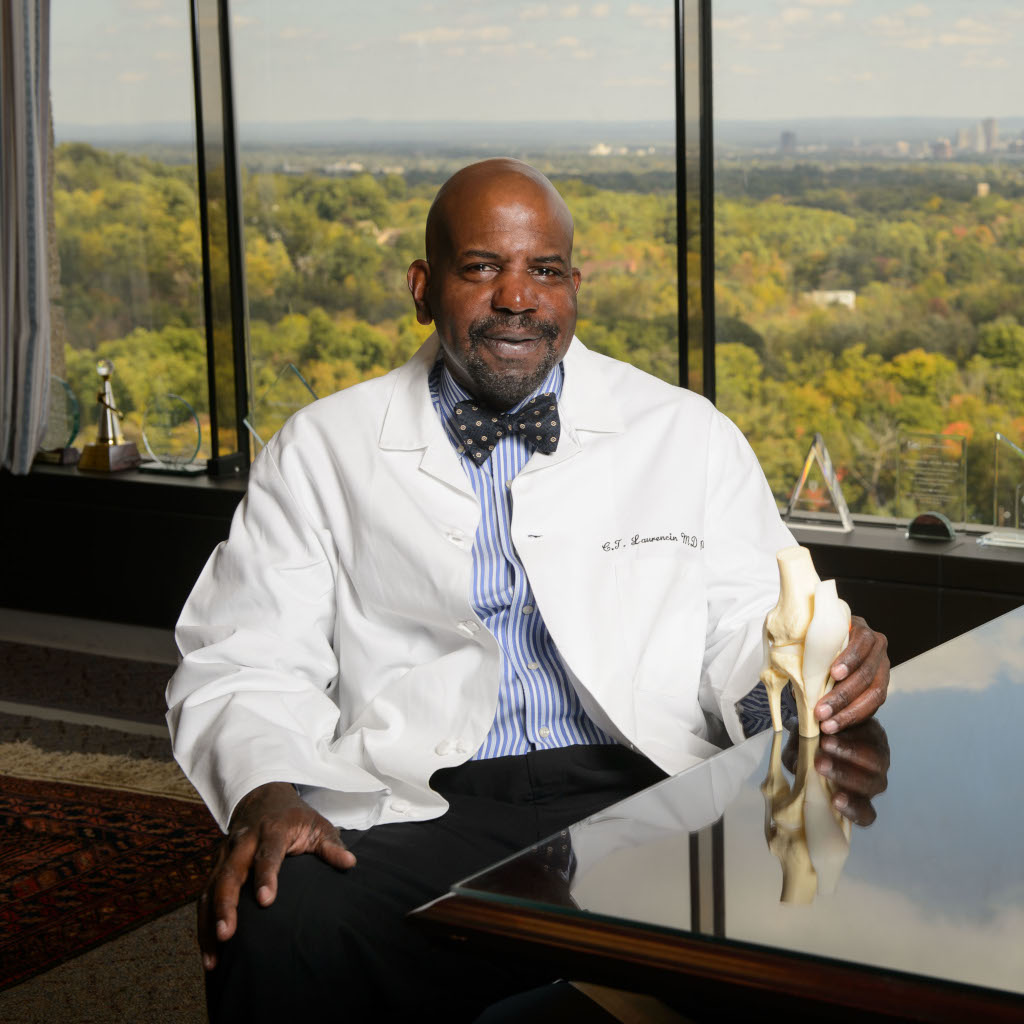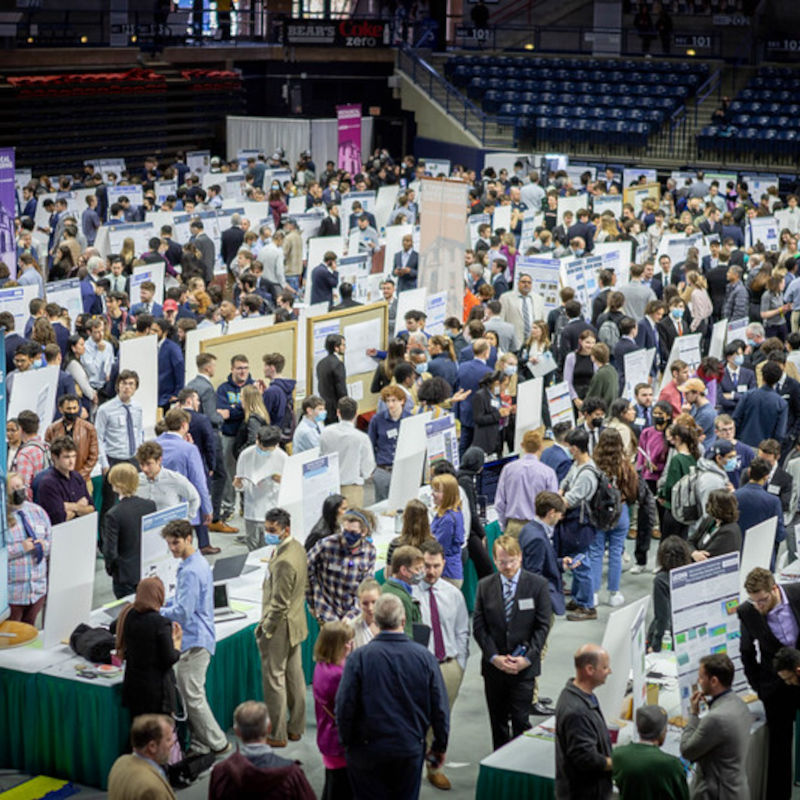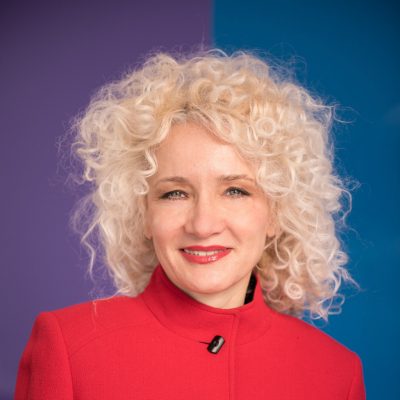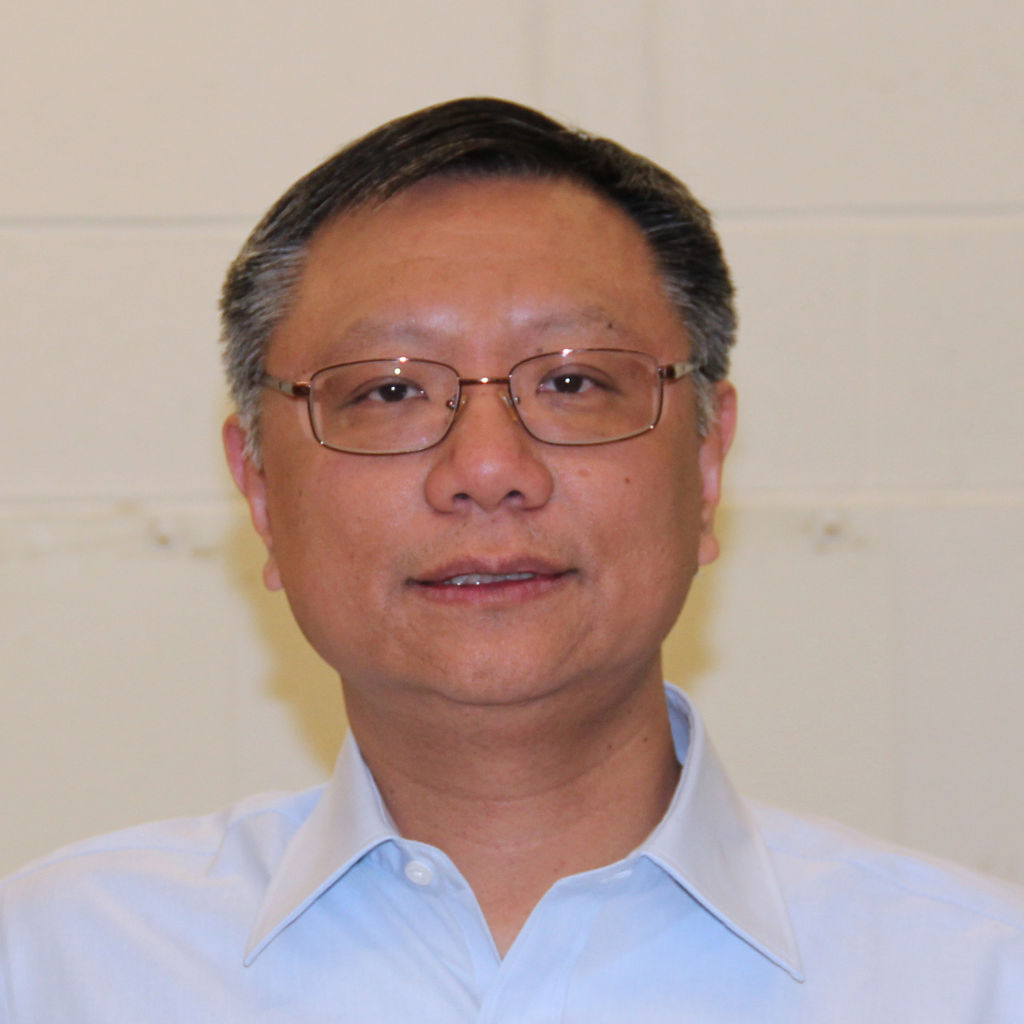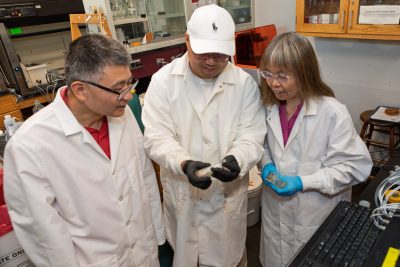 Sharing exciting new research advancing smart sensor technologies to improve long-term monitoring of water and soil systems!
Sharing exciting new research advancing smart sensor technologies to improve long-term monitoring of water and soil systems!
Prof. Baikun Li from the School of Civil and Environmental Engineering leads this effort, working with Prof. Yu Lei from our department and Dr. Xingyu Wang to develop smart sensors for nitrogen species in municipal wastewater with improved accuracy and stability. By leveraging components and technologies that eliminate the need for tedious calibration, this work targets calibration-free, long-term monitoring in wastewater systems—a significant step forward for reliable water quality management.
In parallel, the team is expanding these sensor technologies to agricultural and soil monitoring applications, including the development of hydrogel-coated soil sensors designed to improve monitoring accuracy while helping minimize fertilizer use and reduce environmental impacts in agriculture.
Read more on UConn Today.
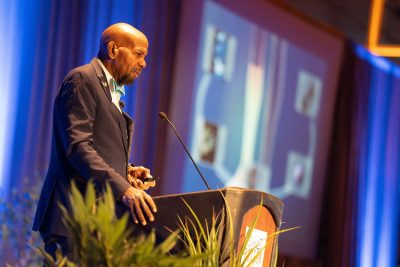 Celebrating an outstanding achievement by Prof. Sir Cato Laurencin, who served as the 2025 Wallace H. Coulter Lecturer at Pittcon, one of the world’s leading conferences in laboratory science and analytical innovation.
Celebrating an outstanding achievement by Prof. Sir Cato Laurencin, who served as the 2025 Wallace H. Coulter Lecturer at Pittcon, one of the world’s leading conferences in laboratory science and analytical innovation.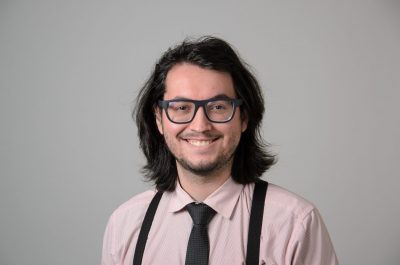 Warmest congratulations to our fourth-year Ph.D. candidate
Warmest congratulations to our fourth-year Ph.D. candidate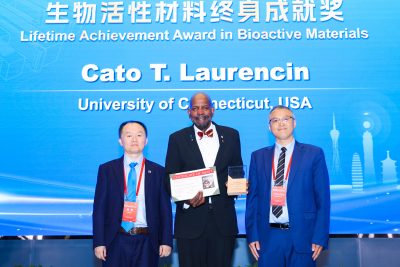 Congratulations to Sir Dr. Cato Laurencin on receiving the Bioactive Materials Lifetime Achievement Award, recognizing his pioneering contributions to biomaterials, regenerative engineering, and translational medicine.
Congratulations to Sir Dr. Cato Laurencin on receiving the Bioactive Materials Lifetime Achievement Award, recognizing his pioneering contributions to biomaterials, regenerative engineering, and translational medicine.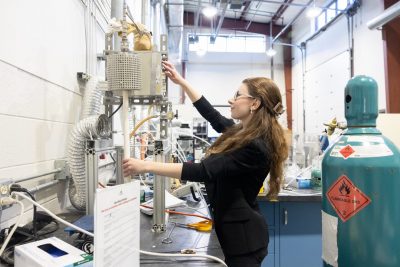
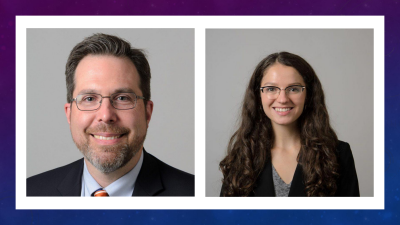 Congratulations to Dan Burkey and Monika Crowl on being awarded a $750K NSF grant through the Improving Undergraduate STEM Education (IUSE) program!
Congratulations to Dan Burkey and Monika Crowl on being awarded a $750K NSF grant through the Improving Undergraduate STEM Education (IUSE) program!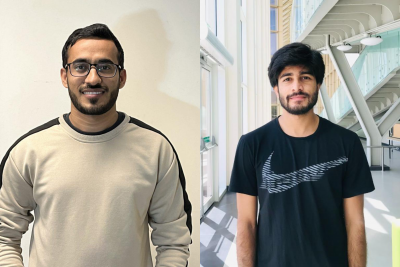 Warmest congratulations to our graduate students, Azeem Sarwar and Muhammad Faheem Hassan, on being selected as one of the five finalist teams for the UConn–Eversource Clean Energy & Sustainability Innovation Program!
Warmest congratulations to our graduate students, Azeem Sarwar and Muhammad Faheem Hassan, on being selected as one of the five finalist teams for the UConn–Eversource Clean Energy & Sustainability Innovation Program!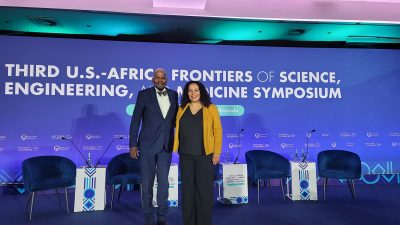 Congratulations to Prof. Cato Laurencin on representing the United States at the 3rd U.S.–Africa Frontiers of Science, Engineering, and Medicine Symposium in Kigali, Rwanda.
Congratulations to Prof. Cato Laurencin on representing the United States at the 3rd U.S.–Africa Frontiers of Science, Engineering, and Medicine Symposium in Kigali, Rwanda.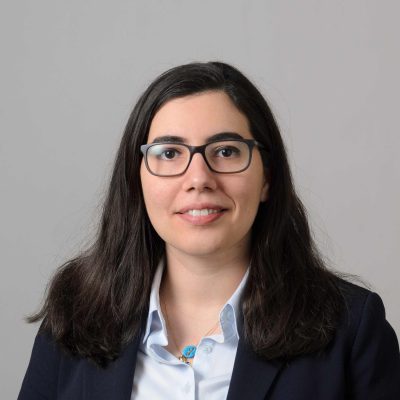 Warmest congratulations to Professor
Warmest congratulations to Professor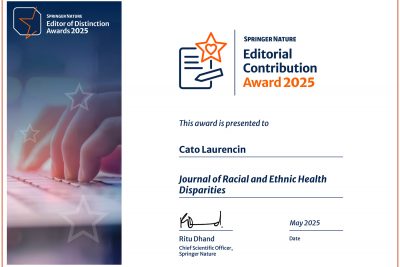 Congratulations to Professor Sir Cato T. Laurencin, MD, PhD, KCSL, on receiving the 2025 Springer Nature Editor of Distinction Award!
Congratulations to Professor Sir Cato T. Laurencin, MD, PhD, KCSL, on receiving the 2025 Springer Nature Editor of Distinction Award! Warmest congratulations to Professor Luyi Sun on being named a 2025 Board of Trustees Distinguished Professor—one of the highest honors UConn confers in recognition of sustained excellence in research, teaching, and service!
Warmest congratulations to Professor Luyi Sun on being named a 2025 Board of Trustees Distinguished Professor—one of the highest honors UConn confers in recognition of sustained excellence in research, teaching, and service! Professor Sir Cato T. Laurencin, MD, PhD, KCSL, was recently honored by the West Indian Foundation at their Board of Directors Reception for his outstanding contributions to the community!
Professor Sir Cato T. Laurencin, MD, PhD, KCSL, was recently honored by the West Indian Foundation at their Board of Directors Reception for his outstanding contributions to the community!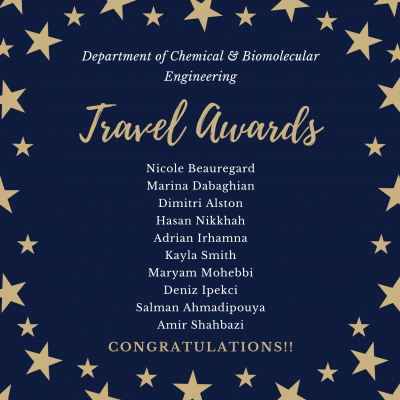 Congratulations to our graduate students who received the 2025 Travel Awards:
Congratulations to our graduate students who received the 2025 Travel Awards: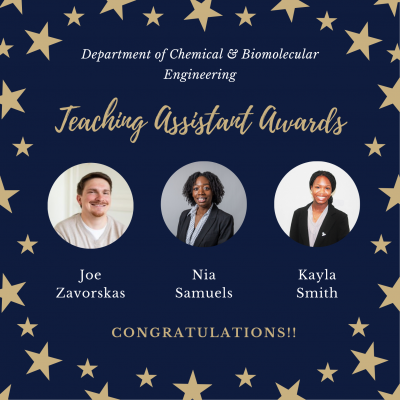
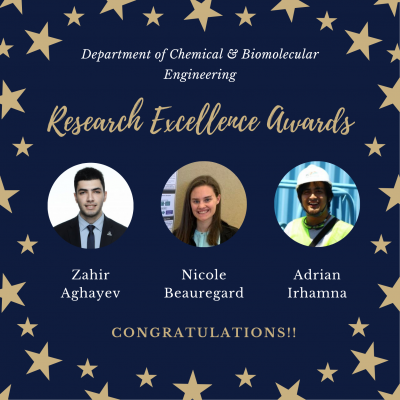 Congratulations to our outstanding graduate students who received the 2025 Research Excellence Awards:
Congratulations to our outstanding graduate students who received the 2025 Research Excellence Awards: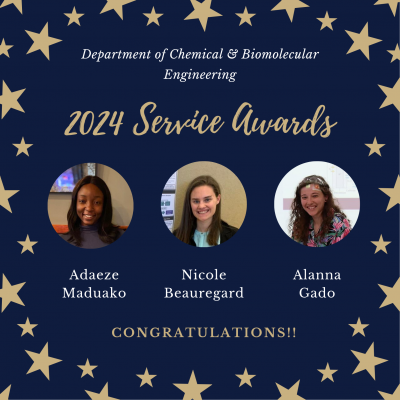 Well-deserved congratulations to our incredible graduate students who received the CBE Service Awards last year:
Well-deserved congratulations to our incredible graduate students who received the CBE Service Awards last year: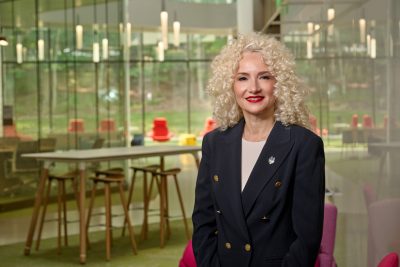 Congratulations to President Radenka Maric on being named a Fellow of The Electrochemical Society (ECS)—one of the highest honors in the field of electrochemistry and solid-state science!
Congratulations to President Radenka Maric on being named a Fellow of The Electrochemical Society (ECS)—one of the highest honors in the field of electrochemistry and solid-state science!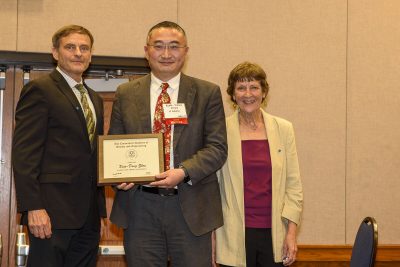 Congratulations to Professor Xiao-Dong Zhou on his election to the Connecticut Academy of Science and Engineering (CASE)—a well-deserved honor recognizing his exceptional contributions to sustainable energy research!
Congratulations to Professor Xiao-Dong Zhou on his election to the Connecticut Academy of Science and Engineering (CASE)—a well-deserved honor recognizing his exceptional contributions to sustainable energy research! We are thrilled to share that Dr. Anson Ma has been promoted to Full Professor effective this Fall! Please join us in congratulating Dr. Ma on this well-earned recognition of his impactful contributions to research, teaching, and service. This milestone reflects years of innovation, leadership, and excellence in the field.
We are thrilled to share that Dr. Anson Ma has been promoted to Full Professor effective this Fall! Please join us in congratulating Dr. Ma on this well-earned recognition of his impactful contributions to research, teaching, and service. This milestone reflects years of innovation, leadership, and excellence in the field.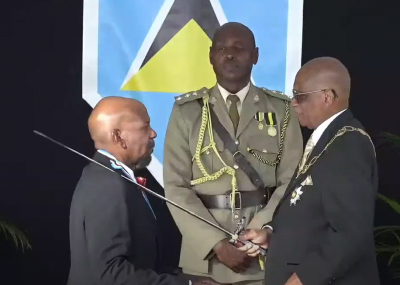 We’re thrilled to celebrate Dr. Cato T. Laurencin’s appointment as Knight Commander of the Order of St. Lucia — earning him the title Sir Cato Laurencin.
We’re thrilled to celebrate Dr. Cato T. Laurencin’s appointment as Knight Commander of the Order of St. Lucia — earning him the title Sir Cato Laurencin.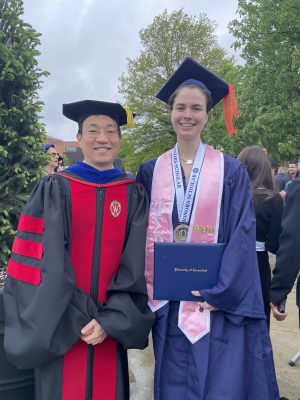 We are excited to highlight yet another outstanding recent graduate of our department,
We are excited to highlight yet another outstanding recent graduate of our department,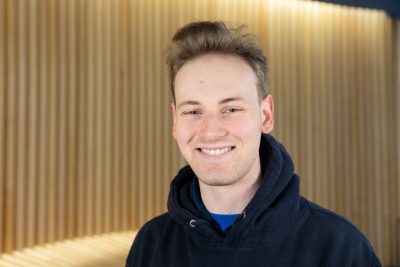 As we continue to reflect on the commencement weekend, we’re thrilled to highlight the achievements of another outstanding graduate from our department, Jacob Crow!
As we continue to reflect on the commencement weekend, we’re thrilled to highlight the achievements of another outstanding graduate from our department, Jacob Crow!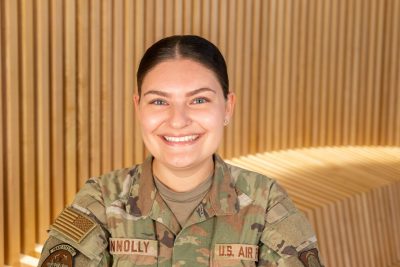 As Commencement Weekend comes to a close, we’re proud to share the incredible journey of one of our outstanding graduates,
As Commencement Weekend comes to a close, we’re proud to share the incredible journey of one of our outstanding graduates,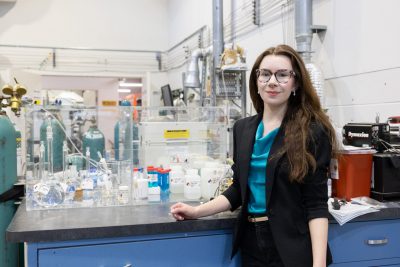 We are extremely proud of our junior, Caitlin Noonan ’26, for being named a Goldwater Scholar!
We are extremely proud of our junior, Caitlin Noonan ’26, for being named a Goldwater Scholar!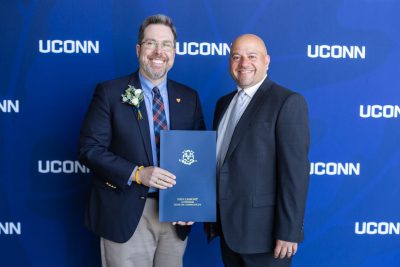 Congratulations to Professor Daniel Burkey on being recognized as the 2025 Outstanding Higher Education Professional by the UConn Neag School of Education and its Alumni Board!
Congratulations to Professor Daniel Burkey on being recognized as the 2025 Outstanding Higher Education Professional by the UConn Neag School of Education and its Alumni Board!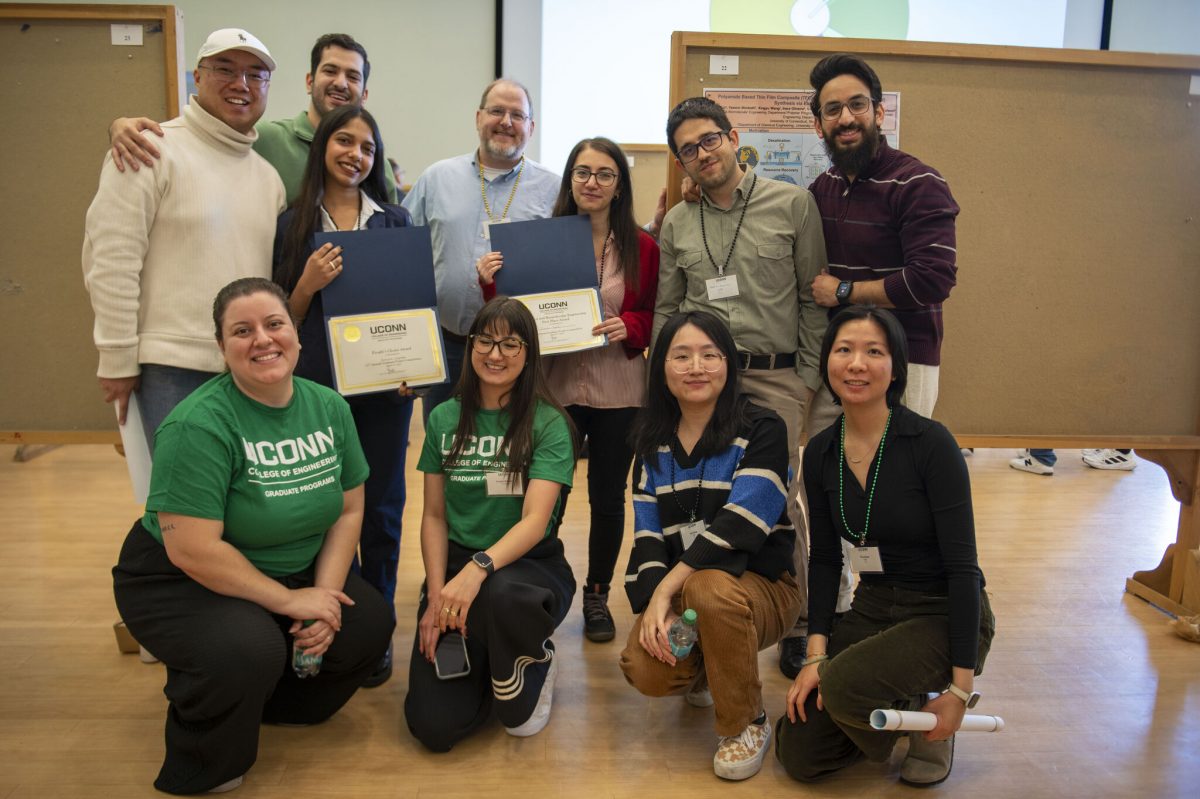
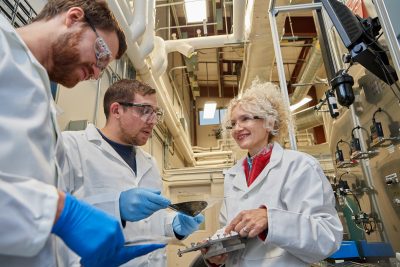 President Radenka Maric (NAI Fellow, 2019) – A leader in sustainable energy, her pioneering work in materials and catalysts has advanced fuel cell technologies, energy storage, and electrochemical sensors, enabling high-performance clean energy solutions.
President Radenka Maric (NAI Fellow, 2019) – A leader in sustainable energy, her pioneering work in materials and catalysts has advanced fuel cell technologies, energy storage, and electrochemical sensors, enabling high-performance clean energy solutions.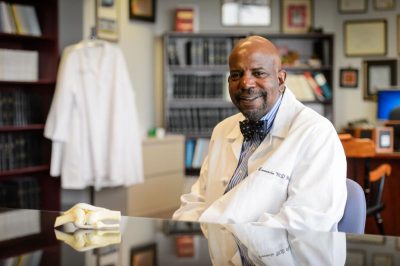 Prof. Cato Laurencin (NAI Fellow, 2013) – The first UConn faculty member to become an NAI Fellow and a trailblazer in regenerative engineering. His breakthroughs in nanotechnology, polymer chemistry, and tissue regeneration have earned him national honors, including the National Medal of Technology and Innovation.
Prof. Cato Laurencin (NAI Fellow, 2013) – The first UConn faculty member to become an NAI Fellow and a trailblazer in regenerative engineering. His breakthroughs in nanotechnology, polymer chemistry, and tissue regeneration have earned him national honors, including the National Medal of Technology and Innovation.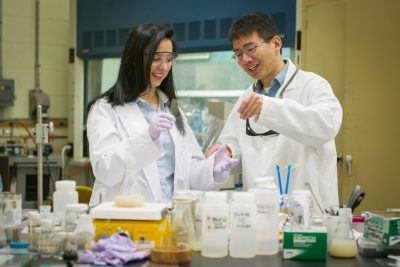 Prof. Luyi Sun (NAI Fellow, 2021) – An expert in polymeric materials, ceramics, and composites, his research is driving innovation in packaging, energy, and catalysis, shaping next-generation materials for diverse applications.
Prof. Luyi Sun (NAI Fellow, 2021) – An expert in polymeric materials, ceramics, and composites, his research is driving innovation in packaging, energy, and catalysis, shaping next-generation materials for diverse applications.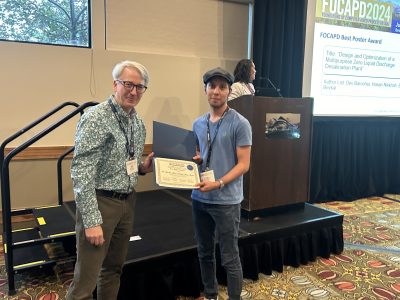 We are thrilled to share that our graduate student, Hasan Nikkhah, has received the Best Poster Award at the 2024 Foundations of Computer-Aided Process Design (FOCAPD) Conference for his work on seawater desalination. In collaboration with our undergraduate student Dev Barochia and under the guidance of Professor Burcu Beykal, Hasan presented their research, “Design and Optimization of a Multipurpose Zero Liquid Discharge Desalination Plant,” which introduces a novel approach to multicomponent seawater desalination with zero liquid discharge.
We are thrilled to share that our graduate student, Hasan Nikkhah, has received the Best Poster Award at the 2024 Foundations of Computer-Aided Process Design (FOCAPD) Conference for his work on seawater desalination. In collaboration with our undergraduate student Dev Barochia and under the guidance of Professor Burcu Beykal, Hasan presented their research, “Design and Optimization of a Multipurpose Zero Liquid Discharge Desalination Plant,” which introduces a novel approach to multicomponent seawater desalination with zero liquid discharge.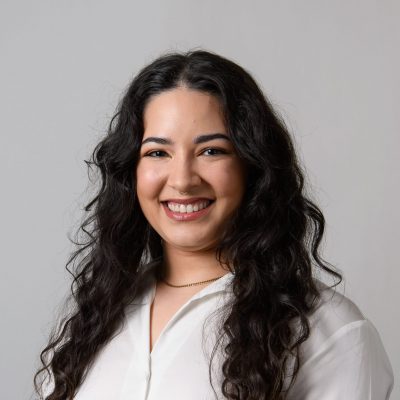 We are excited to welcome Dr. Génesis Quiles-Galarza as an Assistant Professor in Residence in our department starting Fall 2025. Prof. Quiles-Galarza joins us with a strong background in machine learning for materials discovery, first-principles methods, and engineering education, bringing valuable experience in research and undergraduate teaching.
We are excited to welcome Dr. Génesis Quiles-Galarza as an Assistant Professor in Residence in our department starting Fall 2025. Prof. Quiles-Galarza joins us with a strong background in machine learning for materials discovery, first-principles methods, and engineering education, bringing valuable experience in research and undergraduate teaching.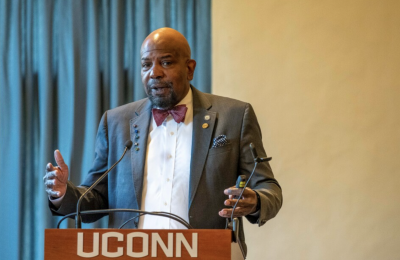 Warmest congratulations to Professor Cato Laurencin, recipient of the 2025 Paul Terasaki Innovation Award! The Paul Terasaki Innovation Award honors individuals who have made outstanding and sustained contributions to biomedical innovation, recognizing those who not only advance research but also translate their discoveries into real-world medical solutions. Dr. Laurencin embodies this mission through his pioneering work in regenerative engineering, polymer science, and musculoskeletal repair and regeneration. His groundbreaking contributions include the invention of the Laurencin-Cooper ligament for regenerating the anterior cruciate ligament (ACL) and the development of engineered grafts for rotator cuff tendon repair and regeneration. His research has bridged fundamental science with transformative medical applications, impacting countless lives.
Warmest congratulations to Professor Cato Laurencin, recipient of the 2025 Paul Terasaki Innovation Award! The Paul Terasaki Innovation Award honors individuals who have made outstanding and sustained contributions to biomedical innovation, recognizing those who not only advance research but also translate their discoveries into real-world medical solutions. Dr. Laurencin embodies this mission through his pioneering work in regenerative engineering, polymer science, and musculoskeletal repair and regeneration. His groundbreaking contributions include the invention of the Laurencin-Cooper ligament for regenerating the anterior cruciate ligament (ACL) and the development of engineered grafts for rotator cuff tendon repair and regeneration. His research has bridged fundamental science with transformative medical applications, impacting countless lives.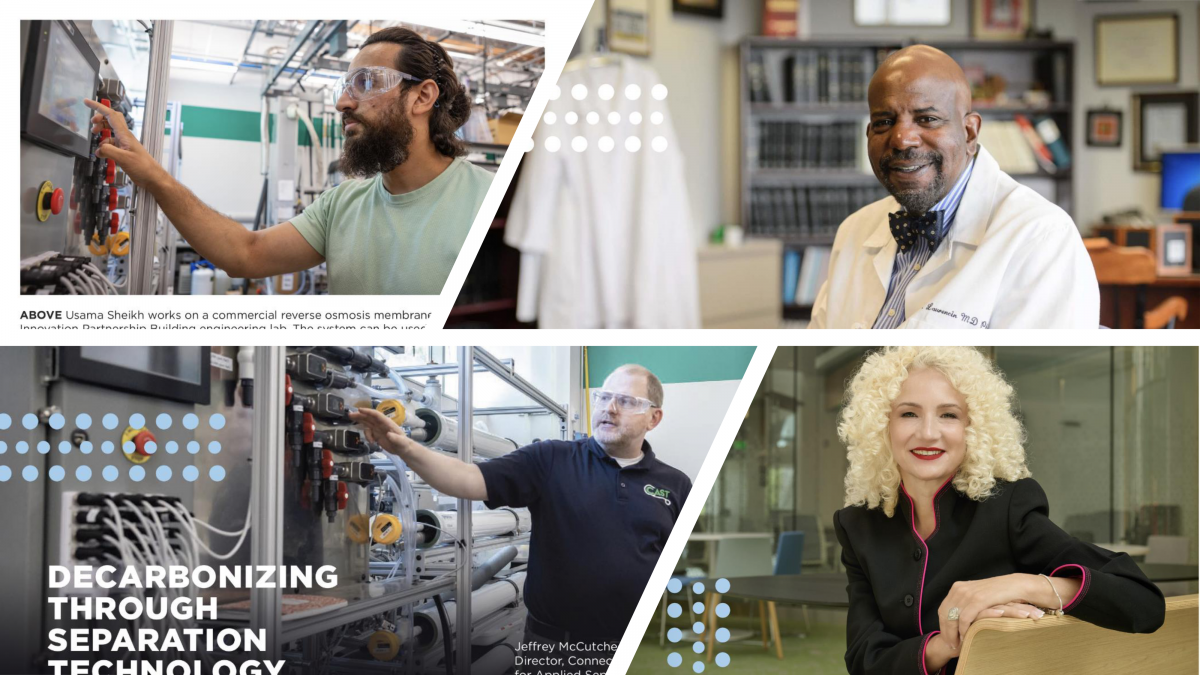 We proudly celebrate our faculty and students who have been recognized in the inaugural
We proudly celebrate our faculty and students who have been recognized in the inaugural 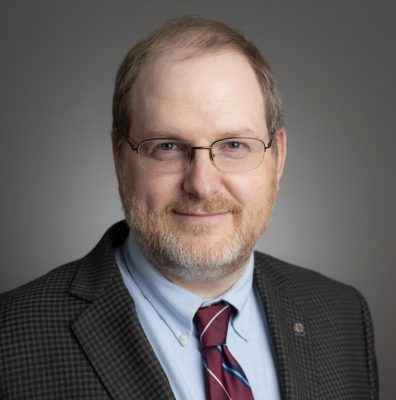 We are proud to share that Professor Jeffrey McCutcheon has been awarded the AIChE FRI/Neil Yeoman Innovation Award by the AIChE Separations Division! This prestigious award recognizes Dr. McCutcheon’s pioneering research in additive manufacturing of thin film composite membranes, a significant advancement in membrane technology that has broad implications for separations science and industry. Dr. McCutcheon presented his groundbreaking work at the AIChE Annual Meeting Separations Division Plenary session last fall.
We are proud to share that Professor Jeffrey McCutcheon has been awarded the AIChE FRI/Neil Yeoman Innovation Award by the AIChE Separations Division! This prestigious award recognizes Dr. McCutcheon’s pioneering research in additive manufacturing of thin film composite membranes, a significant advancement in membrane technology that has broad implications for separations science and industry. Dr. McCutcheon presented his groundbreaking work at the AIChE Annual Meeting Separations Division Plenary session last fall. University
University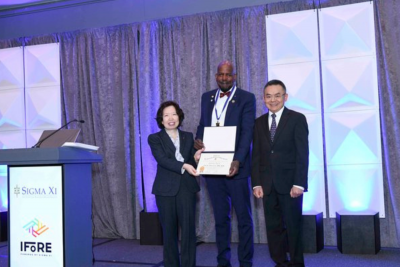 Congratulations to Professor Cato T. Laurencin on receiving
Congratulations to Professor Cato T. Laurencin on receiving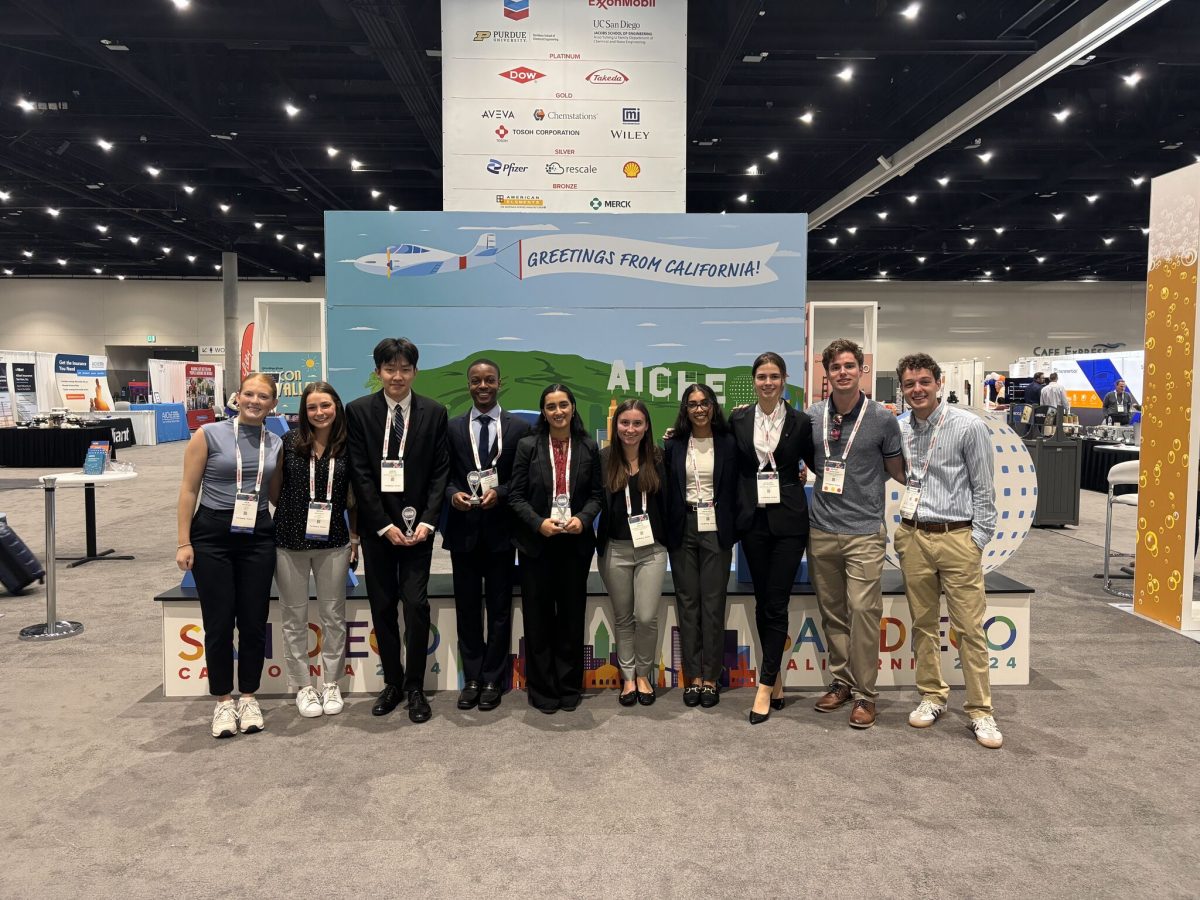
 Congratulations to our graduate student Erik Ammermann for winning the Food, Pharmaceutical, and Bioengineering Division Student Oral Presentation Award at the 2024 AIChE Annual Meeting!
Congratulations to our graduate student Erik Ammermann for winning the Food, Pharmaceutical, and Bioengineering Division Student Oral Presentation Award at the 2024 AIChE Annual Meeting!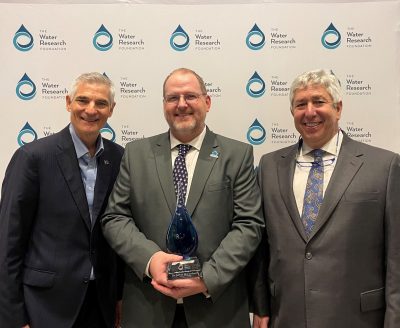 The Water Research Foundation (WRF) has honored Professor Jeff McCutcheon with its top recognition: the Paul L. Busch Award. Dr. McCutcheon and his lab have developed a groundbreaking additive manufacturing approach to produce thin-film water treatment membranes. This method, based on electrohydrodynamic spray processing, enables customization of membrane chemistry and performance—capabilities that traditional manufacturing techniques cannot achieve.
The Water Research Foundation (WRF) has honored Professor Jeff McCutcheon with its top recognition: the Paul L. Busch Award. Dr. McCutcheon and his lab have developed a groundbreaking additive manufacturing approach to produce thin-film water treatment membranes. This method, based on electrohydrodynamic spray processing, enables customization of membrane chemistry and performance—capabilities that traditional manufacturing techniques cannot achieve.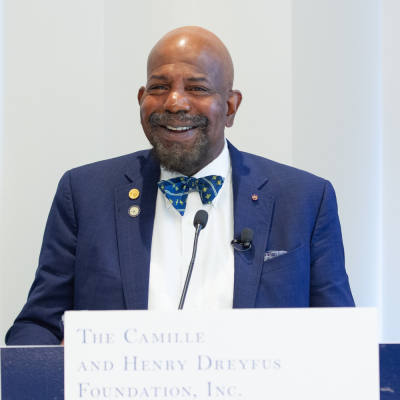 We are thrilled to celebrate Professor Cato Laurencin, who presented a lecture on regenerative engineering at the Dreyfus Foundation’s 2024 Teacher-Scholar Symposium. As a pioneer of this field, Dr. Laurencin holds the unique distinction of being the first surgeon-scientist elected to all four National Academies: Sciences, Engineering, Medicine, and Inventors.
We are thrilled to celebrate Professor Cato Laurencin, who presented a lecture on regenerative engineering at the Dreyfus Foundation’s 2024 Teacher-Scholar Symposium. As a pioneer of this field, Dr. Laurencin holds the unique distinction of being the first surgeon-scientist elected to all four National Academies: Sciences, Engineering, Medicine, and Inventors.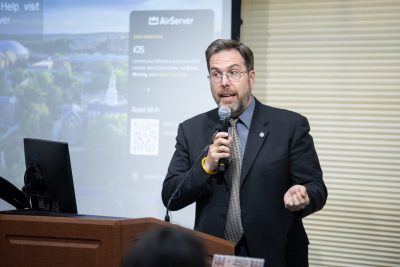 Congratulations to Professor
Congratulations to Professor Congratulations to Professor Kelly Burke on their appointment as our new Head of the Chemical & Biomolecular Engineering Department!
Congratulations to Professor Kelly Burke on their appointment as our new Head of the Chemical & Biomolecular Engineering Department!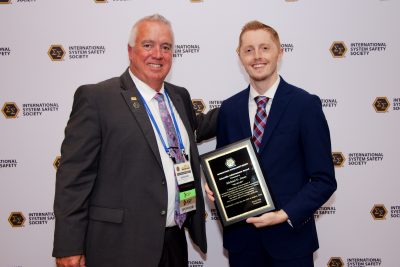 Our alumni
Our alumni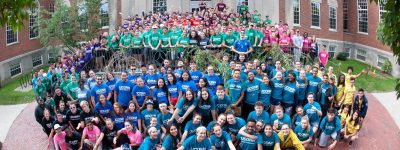 We Are Hiring! The Department of Chemical & Biomolecular Engineering
We Are Hiring! The Department of Chemical & Biomolecular Engineering We’re thrilled to announce that Dr. Yongku Cho and his collaborator Dr. Jesse Rinehart from Yale University School of Medicine have been awarded $500,000 at the Tauopathy Challenge Workshop to investigate post-translational modifications in tau protein aggregates. These chemical changes, found in patients with Progressive Supranuclear Palsy (PSP) and Frontotemporal Dementias (FTDs), may increase tau aggregation and toxicity, both of which are critical contributors to these neurodegenerative diseases.
We’re thrilled to announce that Dr. Yongku Cho and his collaborator Dr. Jesse Rinehart from Yale University School of Medicine have been awarded $500,000 at the Tauopathy Challenge Workshop to investigate post-translational modifications in tau protein aggregates. These chemical changes, found in patients with Progressive Supranuclear Palsy (PSP) and Frontotemporal Dementias (FTDs), may increase tau aggregation and toxicity, both of which are critical contributors to these neurodegenerative diseases.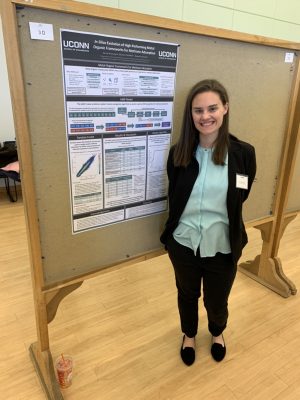 We are thrilled to announce that our graduate student, Nicole Beauregard, has been awarded the NASA Connecticut Space Grant Consortium Graduate Student Fellowship. She will be working on integrating machine learning with evolutionary algorithms for the rapid discovery of high-performing metal-organic frameworks for gas adsorption.
We are thrilled to announce that our graduate student, Nicole Beauregard, has been awarded the NASA Connecticut Space Grant Consortium Graduate Student Fellowship. She will be working on integrating machine learning with evolutionary algorithms for the rapid discovery of high-performing metal-organic frameworks for gas adsorption.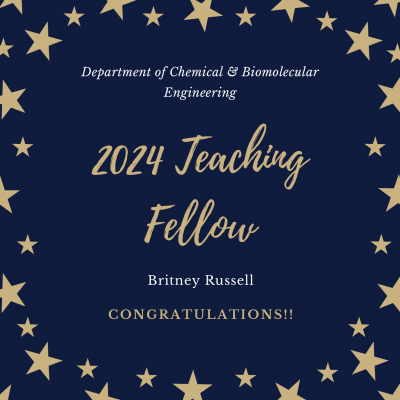 We are proud to announce Britney Russell as the 2024 Teaching Fellow of our Department!
We are proud to announce Britney Russell as the 2024 Teaching Fellow of our Department!  We are proud to announce Hasan Nikkhah, Laron Burrows, and Henry Sokol as the winners of the 2024 Research Excellence Awards! Their pioneering research and unwavering commitment to scientific advancement have earned them this well-deserved recognition.
We are proud to announce Hasan Nikkhah, Laron Burrows, and Henry Sokol as the winners of the 2024 Research Excellence Awards! Their pioneering research and unwavering commitment to scientific advancement have earned them this well-deserved recognition.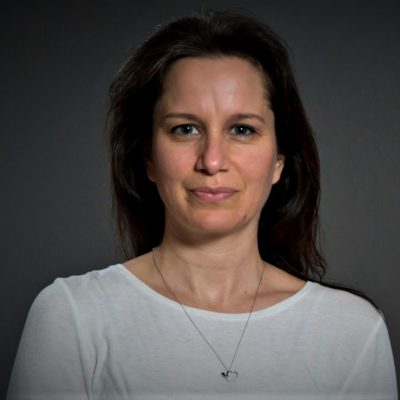 Congratulations to Professor
Congratulations to Professor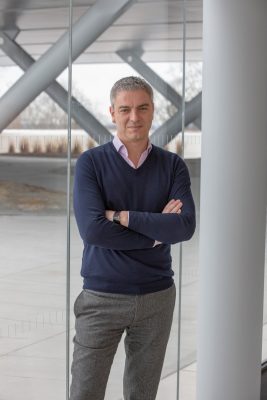 Warmest congratulations to Professor George Bollas on his appointment as the next Associate Dean of Research for the College of Engineering. Dr. Bollas currently serves as the Pratt & Whitney Endowed Chair Professor in Advanced Systems Engineering and the Director of the Pratt & Whitney Institute for Advanced Systems Engineering at UConn.
Warmest congratulations to Professor George Bollas on his appointment as the next Associate Dean of Research for the College of Engineering. Dr. Bollas currently serves as the Pratt & Whitney Endowed Chair Professor in Advanced Systems Engineering and the Director of the Pratt & Whitney Institute for Advanced Systems Engineering at UConn. Warmest congratulations to Professor Leslie Shor on her appointment as the next Dean of the Graduate School and Vice Provost for Graduate Education at the University of Connecticut.
Warmest congratulations to Professor Leslie Shor on her appointment as the next Dean of the Graduate School and Vice Provost for Graduate Education at the University of Connecticut.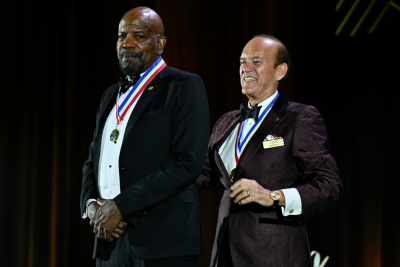 Warmest congratulations to Professor Cato Laurencin on his remarkable achievement of being inducted into the prestigious Plastics Hall of Fame. This honor recognizes his pioneering contributions to the field of regenerative engineering, where he has revolutionized the use of polymeric materials in developing cutting-edge medical devices, biologics, and pharmaceuticals. Prof. Laurencin’s groundbreaking work has transcended traditional boundaries, improving the lives of countless individuals worldwide.
Warmest congratulations to Professor Cato Laurencin on his remarkable achievement of being inducted into the prestigious Plastics Hall of Fame. This honor recognizes his pioneering contributions to the field of regenerative engineering, where he has revolutionized the use of polymeric materials in developing cutting-edge medical devices, biologics, and pharmaceuticals. Prof. Laurencin’s groundbreaking work has transcended traditional boundaries, improving the lives of countless individuals worldwide. Congratulations to the recipients of the 2024 Outstanding Graduate TA Awards!
Congratulations to the recipients of the 2024 Outstanding Graduate TA Awards!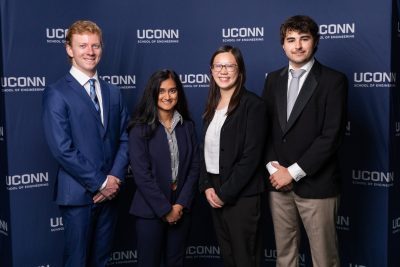
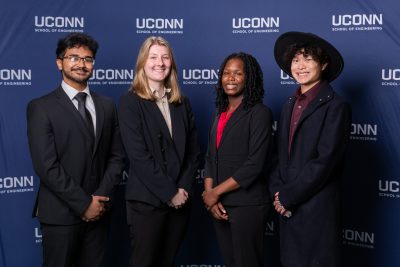
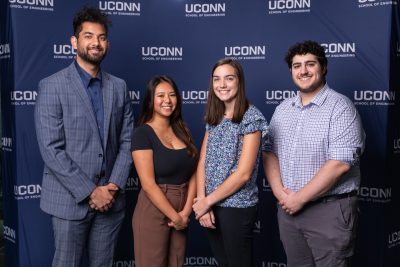
 Warmest congratulations to Professor
Warmest congratulations to Professor

 The American Chemical Society held the Kathryn C. Hach Award for Entrepreneurial Success Symposium on March 19th in honor of Dr. Cato T. Laurencin for his transformative work in regenerative engineering. The Hach Award acknowledges remarkable entrepreneurs who innovate and introduce novel products, services, companies, or industries using chemistry’s transformative potential to enhance lives and bolster economic growth.
The American Chemical Society held the Kathryn C. Hach Award for Entrepreneurial Success Symposium on March 19th in honor of Dr. Cato T. Laurencin for his transformative work in regenerative engineering. The Hach Award acknowledges remarkable entrepreneurs who innovate and introduce novel products, services, companies, or industries using chemistry’s transformative potential to enhance lives and bolster economic growth.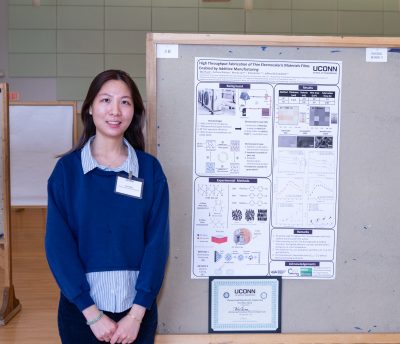
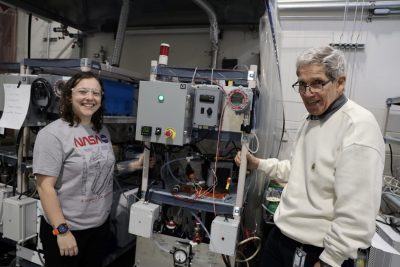 Warmest congratulations to Alanna Gado for being awarded the Graduate Research Fellowship sponsored by the
Warmest congratulations to Alanna Gado for being awarded the Graduate Research Fellowship sponsored by the 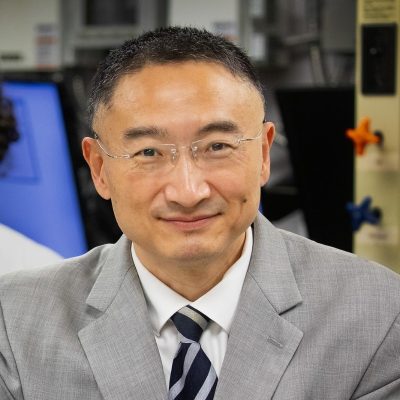 The groundbreaking research led by Professor Xiao-Dong Zhou has the potential to transform aviation, making it more sustainable and contributing to net-zero emissions. Funded by the prestigious ARPA-E program, his interdisciplinary research team is looking to develop a carbon-neutral energy storage and power generation system as an alternative for aircraft propulsion using High-Performance Metal-Supported Solid Oxide Fuel Cells (SOFCs).
The groundbreaking research led by Professor Xiao-Dong Zhou has the potential to transform aviation, making it more sustainable and contributing to net-zero emissions. Funded by the prestigious ARPA-E program, his interdisciplinary research team is looking to develop a carbon-neutral energy storage and power generation system as an alternative for aircraft propulsion using High-Performance Metal-Supported Solid Oxide Fuel Cells (SOFCs). In a groundbreaking achievement, Dr. Cato Laurencin has been named the Inventor of the Year by the Intellectual Property Owners Education Foundation, an accolade that recognizes the world’s most outstanding recent inventors and their profound impact on the nation’s economy and quality of life. Dr. Laurencin’s pioneering work in the field of Regenerative Engineering has resulted in revolutionary technology that promotes bone and tissue regeneration, ultimately enhancing the quality of life for patients. This prestigious recognition underscores the transformative impact of his contributions in the realm of healthcare and regenerative medicine. His innovative work continues to be a beacon of hope for patients worldwide, marking a significant milestone in the field and solidifying his position as a trailblazer in healthcare innovation.
In a groundbreaking achievement, Dr. Cato Laurencin has been named the Inventor of the Year by the Intellectual Property Owners Education Foundation, an accolade that recognizes the world’s most outstanding recent inventors and their profound impact on the nation’s economy and quality of life. Dr. Laurencin’s pioneering work in the field of Regenerative Engineering has resulted in revolutionary technology that promotes bone and tissue regeneration, ultimately enhancing the quality of life for patients. This prestigious recognition underscores the transformative impact of his contributions in the realm of healthcare and regenerative medicine. His innovative work continues to be a beacon of hope for patients worldwide, marking a significant milestone in the field and solidifying his position as a trailblazer in healthcare innovation.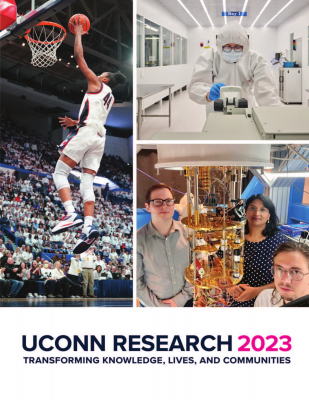 In the latest 2023 UConn Research Annual Report, the exceptional contributions of four distinguished faculty members take center stage. President Radenka Maric, along with esteemed professors Kelly Burke, Xiao-Dong Zhou, and Cato Laurencin, have been featured for their groundbreaking work spanning the realms of sustainability, energy, health, medicine, and community development. The report underscores the significant impact of their research, showcasing their commitment to advancing knowledge and addressing critical issues that resonate across diverse fields.
In the latest 2023 UConn Research Annual Report, the exceptional contributions of four distinguished faculty members take center stage. President Radenka Maric, along with esteemed professors Kelly Burke, Xiao-Dong Zhou, and Cato Laurencin, have been featured for their groundbreaking work spanning the realms of sustainability, energy, health, medicine, and community development. The report underscores the significant impact of their research, showcasing their commitment to advancing knowledge and addressing critical issues that resonate across diverse fields.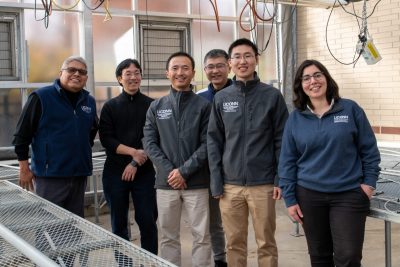
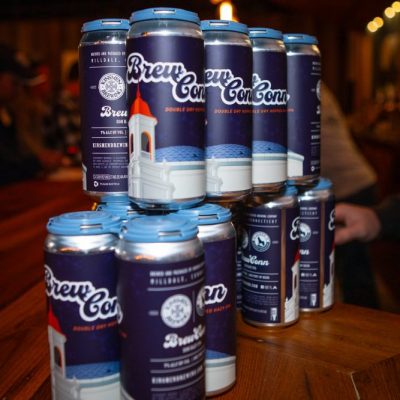
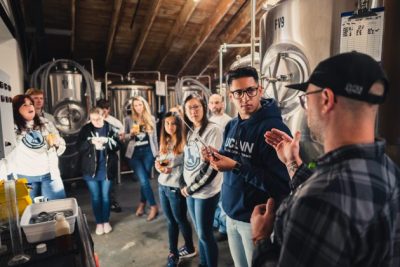
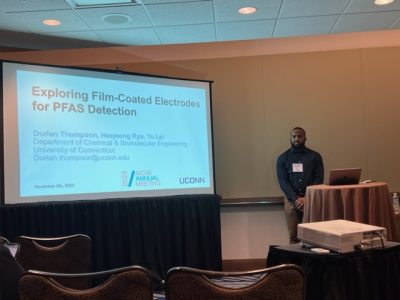 Warmest congratulations to Dorian Thompson for an outstanding achievement—securing the 3rd place in the Graduate Student Competition in Sensors at the AIChE Annual Meeting! Dorian works on PFAS detection under the advising of Professor Yu Lei.
Warmest congratulations to Dorian Thompson for an outstanding achievement—securing the 3rd place in the Graduate Student Competition in Sensors at the AIChE Annual Meeting! Dorian works on PFAS detection under the advising of Professor Yu Lei.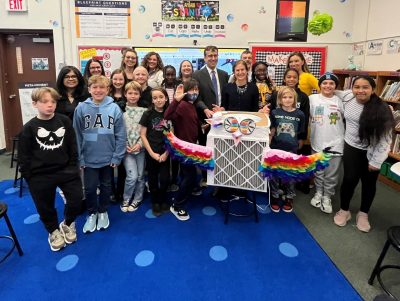
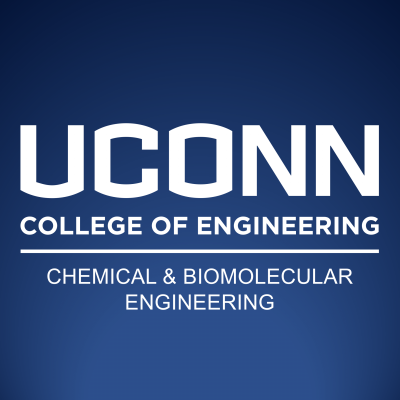 Celebrating a Fresh Look for Our College of Engineering & Department Logos!
Celebrating a Fresh Look for Our College of Engineering & Department Logos!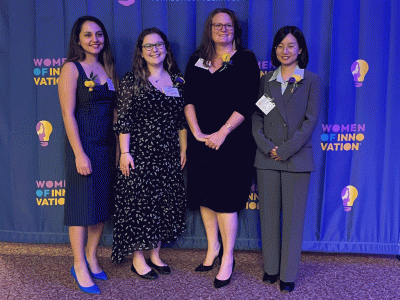


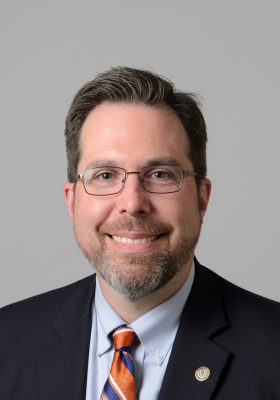 A newly awarded $2.5M
A newly awarded $2.5M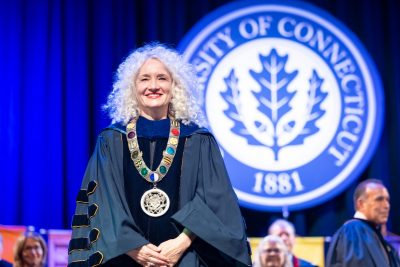

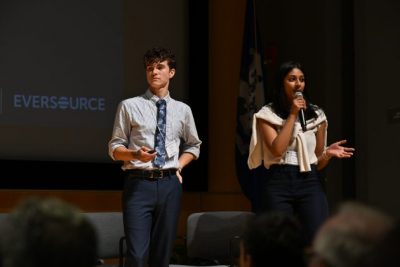
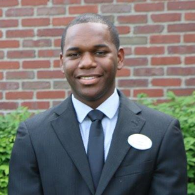 Laron Burrows, making remarkable strides in environmental innovation. His groundbreaking work focuses on cleaning up one of the world’s dirtiest chemical processes, ammonia production. Along with Prof.
Laron Burrows, making remarkable strides in environmental innovation. His groundbreaking work focuses on cleaning up one of the world’s dirtiest chemical processes, ammonia production. Along with Prof.  Warmest congratulations to Dr.
Warmest congratulations to Dr.  Warmest congratulations to Dr. Cato T. Laurencin, the recipient of the 2024 Kathryn C. Hach Award for Entrepreneurial Success
Warmest congratulations to Dr. Cato T. Laurencin, the recipient of the 2024 Kathryn C. Hach Award for Entrepreneurial Success  Professor Yongku Cho has been awarded a $3M R01 grant from the National Institutes on Aging to study the tau protein in Alzheimer’s disease. The project will be a collaboration with Prof. Jesse Rinehart at Yale University and Prof. Lukasz Joachimiak at the University of Texas Southwest Medical. The overarching goal is to elucidate how phosphorylations and other protein modifications in the tau protein affect its toxicity and structure.
Professor Yongku Cho has been awarded a $3M R01 grant from the National Institutes on Aging to study the tau protein in Alzheimer’s disease. The project will be a collaboration with Prof. Jesse Rinehart at Yale University and Prof. Lukasz Joachimiak at the University of Texas Southwest Medical. The overarching goal is to elucidate how phosphorylations and other protein modifications in the tau protein affect its toxicity and structure.
